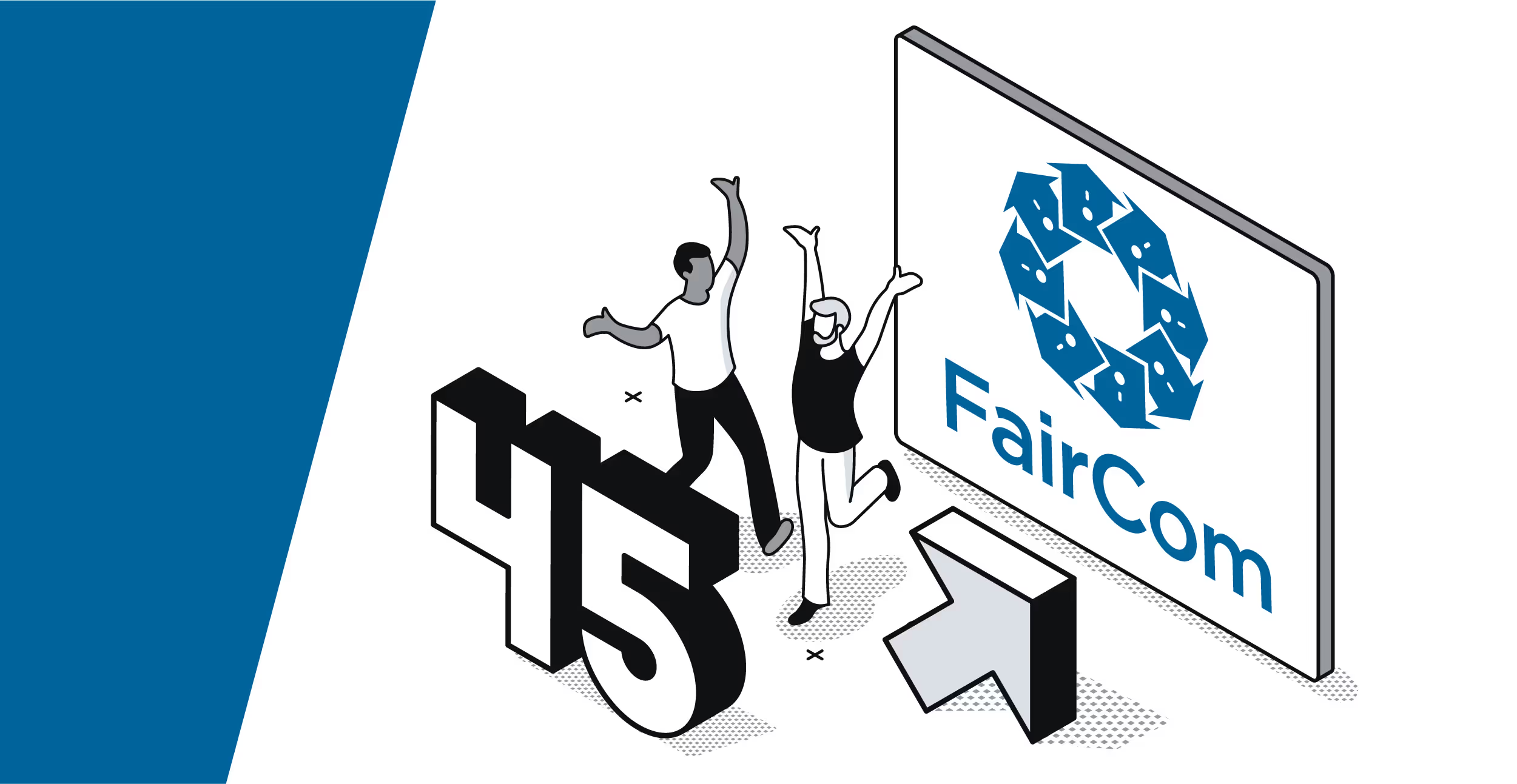For 60 years, COBOL has powered mission-critical applications for organizations. Despite its age, COBOL continues to be the backbone of many applications, and because of this, companies are choosing to continue investing in and enhancing their capabilities through COBOL modernization.
A survey released by Micro Focus in the first quarter of 2020 demonstrates that reliance on COBOL is not going to disappear anytime soon. In fact, one can even argue that the dependence on COBOL is actually strengthening. The survey found that the strategic importance of COBOL among respondents increased from 84 percent in 2017 to 92 percent in 2020. Also, 70 percent of respondents viewed COBOL modernization as a viable strategy to support business change.
FairCom RTG enables enhanced data management and reduces TCO
Access to Newer Technology
FairCom RTG enables companies to modernize and preserve their investment in COBOL in many ways. With FairCom RTG, organizations can integrate with the latest technologies, enhance performance, improve data integrity, and provide access to other applications. By doing this, an organization can avoid the high costs, resource consumption, and inevitable downtime associated with migrating or rewriting their COBOL system. Modernization is also a better option than just standing pat and hoping for the best—a strategy that will ultimately fail at some point.
Beaver Street Fisheries, Inc., is one of the numerous companies that has modernized its COBOL system with the FairCom RTG data management solution. Beaver Street is now reaping the benefits of enhanced dat management and real-time analytics capabilities enabled by RTG. The company’s CIO, Scott Lane, also said the company would continue to add other modernized functions.
"Since adopting RTG at Beaver Street Fisheries, we are now able to run BI reports and queries in real-time, straight from the COBOL data files. This tool allowed us to dramatically reduce the time needed to extract the information from our COBOL system to support the business decision process. Next steps will be to improve availability by implementing real-time replication and fail-over," Lane said.
Being a complete transactional data management solution, another important aspect of FairCom RTG is that it also helps companies to prevent data corruption, which is an inherent problem with non-mainframe COBOL. Traditional COBOL file handlers expose inherent scalability problems, leading to data corruption. FairCom RTG is highly scalable to thousands of concurrent connections and still provides maximum data protection, enhancing data integrity, reliability, and high availability. The companies can also rest easy knowing they will have access to their data with disaster recovery.
Total Cost of Ownership Consideration
Another reason organizations are implementing or seriously considering modernization is the ongoing reduction of the COBOL workforce, which is resulting in an increase in the Total Cost of Ownership (TCO). Several factors are causing the reduced number of people with COBOL development skills. First, the average age of COBOL developers is increasing each year, with a high number retiring each year. Second, the number of colleges teaching COBOL is decreasing as they opt to focus on the newer languages. As the number of developers becomes more scarce, the cost of employing COBOL developers increases.
COBOL modernization with FairCom RTG mitigates this increase in TCO because organizations can use modern languages without changing a line of the COBOL code. In other words, an organization’s developer does not need to be fluent in COBOL to use an RTG-modernized system. Among the modern programming languages that RTG works well with are Java, C/C++, PHP, .NET, and Python.
In addition to the multi-language compatibility, FairCom RTG allows an organization to access modern APIs easily, integrate with non-COBOL systems, and develop new applications using SQL queries. This safe and less-disruptive approach slowly reduces your dependency on COBOL programmers by switching all new developments to a more modern language, which freezes your COBOL applications as much as possible. This is only really possible with the shared-data approach that FairCom RTG provides, which gives a common dataset for both COBOL and other languages to query and update their data.
If you want to learn more about the ease and benefits of a COBOL modernization solution with FairCom RTG, check out the recent RTG Summit Webinar Series hosted by FairCom.
Relevant Additional Resources:




